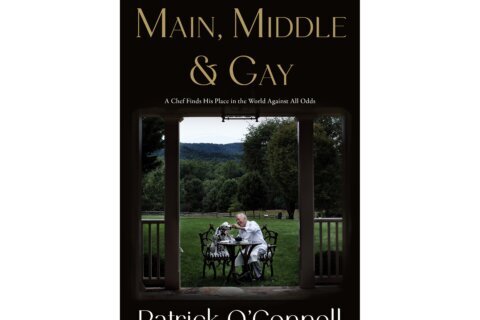Imagine Shakespeare words mixed with Tom Waits music and Penn & Teller magic.
That’s the dazzling conceit of “The Tempest” at Round House Theatre in Bethesda.
“This is Shakespeare’s most magical show,” co-director Aaron Posner told WTOP. “Prospero, the central character, is a magician shipwrecked on a desert island. … Doing on stage what Prospero is doing to the characters, astonishing them, astounding them, knocking them off their game and out of their senses by feats of magic and mystery.”
Fittingly, Posner co-directs with his longtime friend Teller of Penn & Teller, the famed duo that combines David Copperfield-style magic with Laurel & Hardy-esque personas.
“It’s an honor and a privilege to work with my friend Teller,” Posner said. “I had the honor to meet him back in the ’90s and found that the silent member of Penn & Teller is also a Shakespeare fanatic who can quote long sections of ‘Macbeth,’ ‘Tempest,’ ‘Midsummer,’ ‘Hamlet’ and various plays. He knows his Shakespeare backwards and forwards.”
Expect to see playing cards flying across the stage with mind-blowing visual effects that transcend your typical magic show by fusing the tricks with the profound narrative.
“We have woven 20-something magic tricks, magic effects, magic moments deeply into the fabric of the story,” Posner said. “Is it close-up magic, slight of hand? Yes. Is it larger magical effects? Yes. … There’s a magic trick called a twister box [as] we take a hundreds-year-old magic trick and put it in service to the narrative that Shakespeare wrote.”
There’s also a creature on the island called Caliban, which is “half a human, half a monster,” that’s brought to life at Round House by the modern dance company Pilobolus.
“Watching their work, Teller said, ‘Wait a second, I see a Caliban in there,” Posner said. “We met with Pilobolus and came up with this idea of a conjoined twin two-person Caliban moving in remarkable weight-sharing, defying-gravity ways. We proposed it to Pilobolus and they got excited. … Another element that brings out the unearthliness of the piece.”
It’s all set to a dozen tunes by the gruff, enigmatic and always-fascinating musician Tom Waits, including “Dirt in the Ground,” “Shiny Things” and “Innocent When You Dream.”
“We met with Tom in Las Vegas [and he said]: ‘This sounds awesome. You can use anything of mine that I own after 1983,’ so I listened to a lot of Tom Waits music,” Posner said. “Much of the texture of that music fit the sort of messed-up, rough, raw, difficult and dangerous world that we were creating. … There’s a lot of beauty and a lot of brokenness.”
Of course, don’t forget that the text itself includes some of Shakespeare’s “most gorgeous language,” including lines like “past is prologue” and “we are such stuff as dreams are made on.” Posner and Teller are populists who hope to bring this art to a mass audience.
“Whether you’re coming because it’s Teller or Tom Waits or Pilobolus or Shakespeare, we are passionate about making Shakespeare that is available and accessible to everyone,” Posner said. “It doesn’t need to sit on a mountaintop or a pedestal. It was for everyone, for the last 400 years it was designed to be for everyone, and it can [still] be for everyone.”
Listen to our full conversation here.








